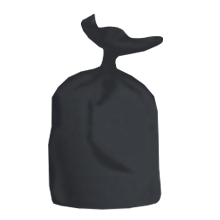The 7 Pathways approach to offender management aims to tackle the causes of reoffending.
People who offend tend to have a higher incidence of issues in certain areas than the general population. Research shows that there are key factors that influence reoffending. Many offenders will have complex needs requiring multiple interventions. Every offender is assessed and clear goals set (via the sentence planning) process for reducing risk of reoffending.
Accommodation & support
Having accommodation and appropriate support helps offenders lead more stable lives. When offenders leave prison, they need suitable accommodation to go to. The Prison endeavour to address accommodation issues via:
- Partnership working with Guernsey Caring for Ex-Offenders
- Referrals to Social Housing
- Offender Deposit Assistance Scheme
- As stakeholders in the emergency/Temporary Accommodation work stream
- Our Resettlement Officer
Employment & Education
Being in employment reduces the risk of reoffending. We need to assist in providing skills to help offenders to enter employment, training or education to establish legitimate earning capacity and self-support.
- Learning & Skills Department
- OMU Resettlement Officer
- Creative Learning In Prison (CLIP - the Prison Charity)
- Release on Temporary Licence Progression Scheme:
- Release on Temporary Licence (ROTL) is the mechanism that enables prisoners to participate in necessary activities, outside of the prison establishment, that directly contribute to their resettlement into the community and their development of a purposeful, law-abiding life. All activities, for which temporary resettlement release is granted, are directly linked to the sentence planning process both for developing work and life skills and for maintaining, or re-establishing, family and community ties. The decision to allow temporary release is always balanced by an active consideration, by means of rigorous risk assessment, for maintaining public safety and the public's confidence in the judicial system.
- There are 5 types of temporary release licence:
- 1 - "Redband" Duties & supervised community work parties
- 2 - Resettlement licence i.e. flat viewings, job interviews
- 3 - Voluntary work placement
- 4 - Paid work release/College of Further Education (full or part-time)
- 5 - Home/Community Visits
- Below are just some of the benefits of the R.O.T.L progression scheme:
- Grow and harness skills
- Build confidence and self-esteem
- Give back to the community
- Opportunity to change vocation due to one's conviction
- Find a job for release
- Obtain Employer's feedback which can assist with references for future applications
- Save money for accommodation
- Increase employability
- Gain invaluable work experience
Drugs & Alchol
Substance misuse is strongly associated with offending. We need to work with offenders to enable them to address drug and alcohol misuse, which may be linked to offending behaviour, through a range of interventions and programmes.
- Substance Use Services
- Prison Healthcare Department
- Community Drug & Alcohol Team
- Alcoholics Anonymous
- Guernsey Alcohol Advisory Service
- Criminal Justice Substance Service
Family & Social Support
Offenders' families can be affected by the offenders' behaviour (and punishment), but can also be a source of support and stability. We need to enable offenders to maintain and develop appropriate relationships with family and the community to provide support and encouragement for successful rehabilitation.
- Family & couple therapy service provided by the Prison Psychotherapist.
- Services for parents in prison e.g. support with child protection and family court proceedings.
- Parenting skills
- Supervised contact and parenting assessments in The Cabin
- Children's Visits
- Storybook Mums & Dads
- Guernsey Caring for Ex-Offenders Mentor and Prison Visitor Scheme
Being able to stay in touch with family and friends is an important part of the rehabilitation process for prisoners, and as such is an effective way of reducing the likelihood of re-offending.
Prisoners may communicate with their family and friends through organised visits, phone calls via in-cell telephones (monitored and recorded by the Security Department, and can be switched off if necessary), and letters. For those with family and friends overseas, the Email a Prisoner facility and Purple Visits (Link to Purple Visits bit on visits page) may be of particular value in maintaining family/community links.
Prisoners are entitled to a number of visits sessions per month, according to their Incentives and Earned Privileges Level. Additional sessions available include children's visits and supervised contact sessions, which may take place in the family facility, The Cabin.
The prison work closely alongside Guernsey Caring for Ex-Offenders who provide excellent support to prisoners during their time in prison and on release. Prison can be especially hard for those with minimal social and family support. The GCFEO team are available to be a friendly ear during visits, assist prisoners with issues in the community following reception into custody (for those that don't have family members to assist), and can be there to support transition through the gate on release into the community.
Life skills & Offending Behaviour
Offenders learn in the same way as the general population but often have underdeveloped thinking skills. We need to assist in the development of effective problem-solving abilities and pro-social strategies and ensure that specific offence related behaviour such as violence, sex offending and domestic abuse are properly addressed.
- Key role of the Probation Service - bespoke 1:1 intervention based on individual risk assessment.
- Sex Offender Treatment Programme in consultation with Forensic Psychologist Dr David Briggs.
- Sarnia Programme for perpetrators of domestic abuse.
- Group work programmes facilitated by the Prison psychotherapist:
- Choices & Challenges Offending Behaviour programme
- The Decider Skills (Life skills programme)
Identified offending behaviour needs are addressed on a 1:1 or small group basis with Offender Managers, Offender Supervisors and the Prison Psychotherapist. Programmes undertaken outside of the group work provision include Dealing with Destructive Levels of Male Aggression, Sex Offender Treatment, Domestic Abuse Perpetrator, and a specific programme aimed at offenders with substance misuse problems who are identified as suffering from Post-Traumatic Stress Disorder.
Health (physical & mental)
Offenders often experience significant problems in gaining access to health care in the community and a disproportionate percentage have mental health problems. We need to ensure that primary and mental health issues are assessed and addressed, and to help offenders establish healthy lifestyles both in custody and through the gate into the community.
- Community Mental Health Services
- Prison Psychotherapist
- Prison Healthcare Department
Financial Management
Offenders can face particular problems with debt and benefits. We need to improve offenders' financial management and provide access to debt counselling to reduce the need to commit acquisitive crime. This is predominantly in partnership with the Community Savings initiative providing financial literacy support and alternative banking facilities for ex-offenders.













